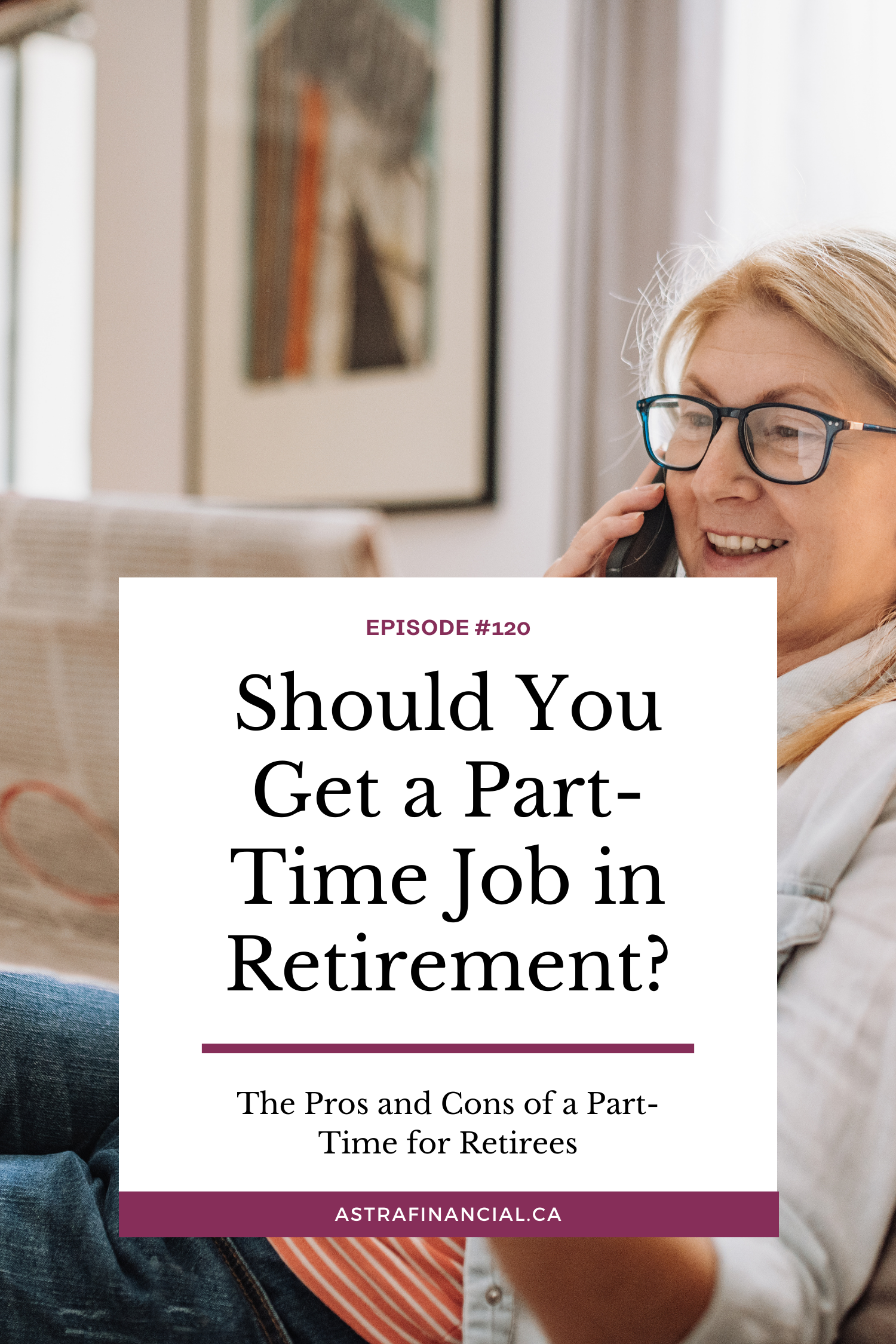Should You Get a Part-Time Job in Retirement?

Curious about whether a part-time job in retirement is right for you? In this episode of the Heart of Your Money podcast, we dive into the emotional and financial considerations of working part-time after retirement. Whether you’re looking for a sense of purpose, a financial buffer, or simply exploring your options, our expert advice will help you make an informed decision. Tune in to discover how a part-time job could fit into your retirement plan and ensure you enjoy this next chapter to the fullest.
Show Notes:
Hey there, welcome back to the Heart of Your Money podcast. This is episode 120. Today, I’m going to address a question that frequently arises in our office. You might have wondered about this yourself: Should you get a part-time job in retirement?
This topic has been coming up a lot this week as I’ve been preparing retirement plans for various clients. Whether it’s February, September, or the end of 2025, many people are contemplating this question well before they retire. The transition into retirement brings emotional and financial uncertainties. The idea of not receiving a regular paycheck and relying on retirement savings can feel like stepping into an uncontrolled world.
People love to plan ahead, which is fantastic. However, many wonder if they should work part-time after retirement to help ease the transition. They are trying to envision a new phase of life after spending years accumulating savings and working. This question comes up even as people finalize their retirement dates with their employers.
For instance, one client recently decided their last workday would be July 1st, but they are still unsure about part-time work afterward. This uncertainty is common. It’s as frequent a topic as our discussions about CPP (Canada Pension Plan) in previous episodes. If you’re preparing for retirement, you might have one of three responses to the question of part-time work.
The first response might be a definitive “hell no.” Some people have a list of activities they want to pursue and no interest in working again. They are entirely satisfied with their plans and see no need to find additional purpose or stay busy through work.
The second response might be a definite “yes.” Some people plan to move to part-time or contract work months before retirement. They are financially ready but choose part-time work for emotional reasons, such as maintaining a sense of purpose or social interaction.
The third response, and the most common, is uncertainty. Many people are open to the idea but want to see how things unfold as they approach retirement.
The emotional and financial aspects of retirement are significant. Recently, rising inflation and costs have sparked more discussions about working part-time for extra income. Part-time jobs can fund enjoyable activities like traveling or buying a camper, providing flexibility and some financial buffer.
Working part-time can bridge the income gap until you’re ready to draw on retirement savings or until CPP starts. It reduces the need to draw from investments, which can make your savings last longer and offer peace of mind.
For example, I had a client who included part-time work in her financial plan to ensure her retirement savings lasted until age 96 or 97. This plan provided her peace of mind and allowed her to retire from a job she disliked while waiting for CPP and OAS (Old Age Security) to kick in. She enjoyed the personal fulfillment, social interaction, and mental engagement from her part-time work.
Another client retired with a defined benefit pension, a lifetime annuity from her employer, and decided to work part-time. This added income pushed her into a higher tax bracket. Despite the financial and social benefits, she eventually decided it wasn’t worth it due to the extra taxes.
If you receive a defined benefit pension and choose to work part-time, consider delaying CPP and OAS. This strategy can help you avoid extra taxes and receive higher benefits later.
Working part-time in retirement can keep you active, engaged, and financially secure until CPP and OAS begin. However, it’s essential to plan for the financial implications, including taxes. Consult a financial planner to ensure your part-time job aligns with your retirement goals and brings you joy.
If you have any questions, feel free to contact me at [email protected].

